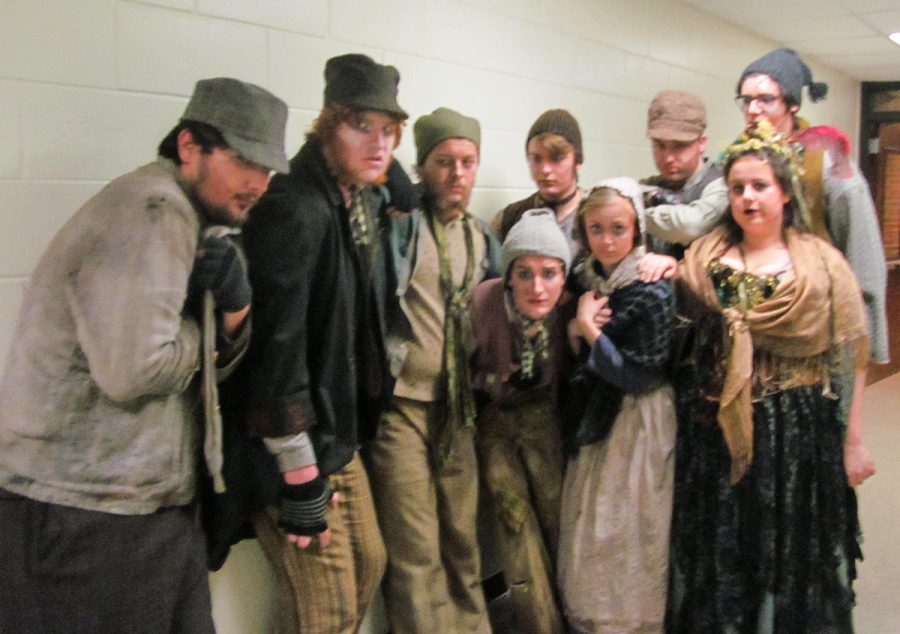‘Sweeney Todd’ exposes struggles still faced today in Opera production
Debated as one of the more difficult shows to perform, UW-Eau Claire accepted and embraced the challenging show
More stories from Elizabeth Gosling
Photo by Elizabeth Gosling
“Sweeney Todd” involves 31 cast members, 30 musicians, a large technical crew and directing and support crew.
In a world where there are only rich or poor, it often seems there is no happy medium found between the two. However, one man seeks to challenge that theory when he is given a second chance despite his scandalous past.
Benjamin Barker was falsely convicted of a crime, and 15 years later, when he got out of jail, he renamed himself “Sweeney Todd,” vowing to get revenge.
The UW-Eau Claire Music and Theatre department’s production of “Sweeney Todd” recently finished its first round of the opera “Sweeney Todd — The Demon Barber of Fleet Street” and will have one more set of shows next weekend.
Opening the show with forceful organ chords and a powerful first ensemble number, the cast of “Sweeney Todd” depicted a group of hungry, poor and impoverished English citizens in London.
One man, Anthony Hope, longs to find true love and counts on his good friend Sweeney Todd to help him jump through a few hoops with Judge Turpin, the very same man who convicted Todd to jail.
Tobias Ragg, played by Matt Nyman, is a young boy with a developmental disorder that, although small and a bit behind, offers insight to Mrs. Lovett, Todd’s partner in crime.
Nyman said his character is vulnerable and clings onto people which hurt him, being subject to abuse from his first boss, Aldolfo Pirelli. After Pirelli and Todd meet and Todd commits his first crime, Ragg stays with Mrs. Lovett, who soon becomes his mother figure and teaches him to make pies.
“It’s not your typical opera or musical,” Nyman said. “It’s very dark, and there are very few happy moments in this opera. It also kind of brings to light some real issues that we are still facing today, like the fact that the poor are getting pushed around by the rich … at the end you realize that what Sweeney did, anyone could do.”
Kenneth Pereira, professor of voice and stage director of the opera, said the complexity of the music and emotions make it a challenging opera to perform, but the group worked hard to make it successful.
Vocal health is an important aspect to consider when choosing operas and your cast, which is why Pereira said he decided to have two casts, not only to allow for more opportunities to participate, but also to prevent tiring of the cast members’ voices.
“Sondheim (composer of the opera) has this amazing ability to really get at something deeper,” Pereira said. “What may seem just like a little horror story was really about oppression, and what happens when the 2 percent oppress everyone in the 98 percent. I think it is a very relevant theme.”
Jenna Matthias, a sophomore theatre arts student and stage manager for “Sweeney Todd,” said she thought it would be harder to manage because the cast is large, but they have been respectful and made the experience fun.
One audience member on Saturday night, Jamison Wendlandt, said he went to see his roommate perform as Todd. He said the emotions in the opera are dark but also powerful and the work the students did is impressive.
Tickets are available to purchase for $20 at the Service Center in Davies Center or online. Next weekend’s shows will be held at 7:30 p.m. March 2-4 and 1:30 p.m. March 5 in Gantner Concert Hall in Haas Fine Arts Center.


